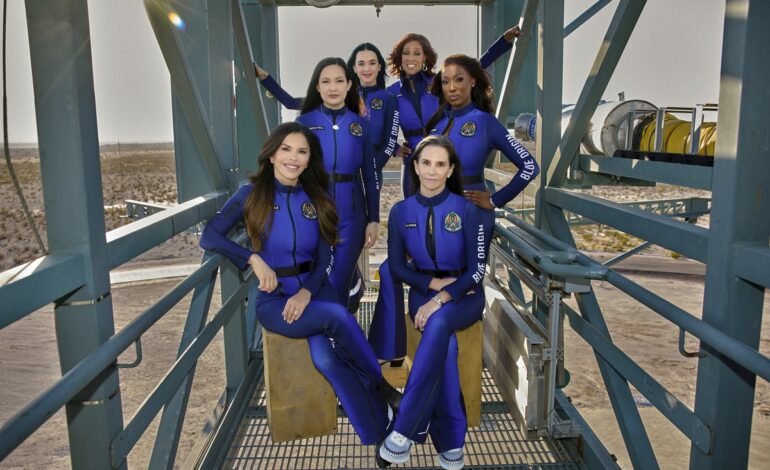Why the All-Female Space Mission Missed the Mark

It seems the recent all-female space mission by Blue Origin has left many scratching their heads, and frankly, I’m here to help you navigate this bewildering situation. You probably think a space mission sounds thrilling and groundbreaking, but when it’s wrapped in celebrity glam and lacks real substance, it’s easy to see how things can go awry. This particular mission, featuring a team of well-known women, has sparked discussions about privilege and representation in a field that should ideally celebrate talent and skill over social media followings.
Now, let’s break it down. The mission, while historic in its all-female crew, was criticized for being out of touch with the very real issues faced by women in science and technology. Instead of addressing the systemic barriers that keep women from entering STEM fields, the focus seemed to be on the glitz and glamour of celebrity culture. It’s almost as if they thought putting a few famous faces in space would automatically equate to progress. Spoiler alert: it doesn’t.
The crew, comprised of accomplished women, including a filmmaker and a former astronaut, may have had their hearts in the right place, but it’s essential to recognize the disconnect between their luxurious journey and the grassroots struggles of countless women aspiring to break into aerospace. While social media influencers float around in zero gravity, many women still face hurdles like lack of access to education, mentorship, and funding in these crucial fields.
To add a pinch of salt to the wound, it’s worth mentioning that Blue Origin, founded by Jeff Bezos, has had its own share of controversies regarding workplace culture and diversity. So promoting an all-female mission while facing accusations of fostering a toxic work environment? That feels more like an attempt at PR than a genuine commitment to change.
The reality is, celebrating women in space is fantastic, but it must come with a broader understanding of the challenges women face in getting there. If the mission had included a discussion about these barriers or a commitment to support programs for aspiring female scientists, it could have transformed a superficial event into a meaningful conversation. Instead, it appears to be another instance of performative activism, which is all too common in today’s celebrity-obsessed culture.
In conclusion, while the all-female space mission undoubtedly created a buzz, it ultimately fell short of addressing the pressing issues women continue to face in the STEM fields. So, as we look to the stars, let’s hope next time we can bring a little more substance along for the ride. Glad I could clear that up for you.
Sources: Celebrity Storm and BuzzFeed, The Guardian, NASA, Forbes
Attribution: Creative Commons Licensed




